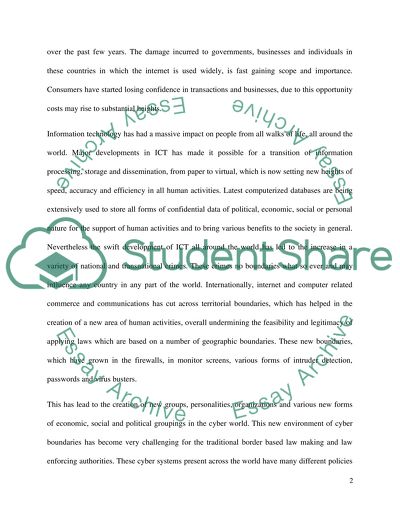Cite this document
(“Ethical professional and cultural issues of ICT Essay”, n.d.)
Retrieved from https://studentshare.org/miscellaneous/1566972-ethical-professional-and-cultural-issues-of-ict
Retrieved from https://studentshare.org/miscellaneous/1566972-ethical-professional-and-cultural-issues-of-ict
(Ethical Professional and Cultural Issues of ICT Essay)
https://studentshare.org/miscellaneous/1566972-ethical-professional-and-cultural-issues-of-ict.
https://studentshare.org/miscellaneous/1566972-ethical-professional-and-cultural-issues-of-ict.
“Ethical Professional and Cultural Issues of ICT Essay”, n.d. https://studentshare.org/miscellaneous/1566972-ethical-professional-and-cultural-issues-of-ict.


